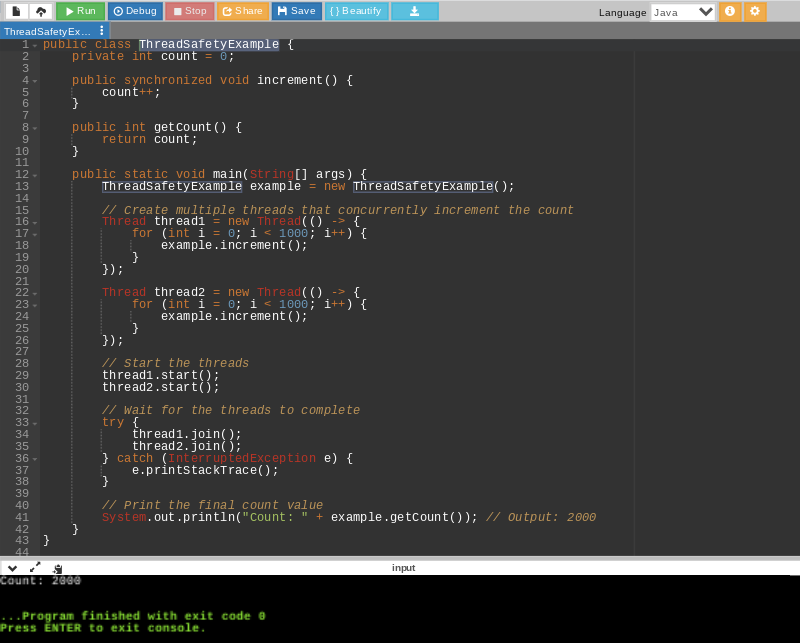Why Are Strings Immutable in Java? Insights into Memory Efficiency
Why Are Strings Immutable in Java? Insights into Memory Efficiency
Blog Article
What Is Unalterable Strings and Exactly How It Works
In the realm of programs, recognizing the idea of immutable strings is paramount for creating safe and robust applications. Immutable strings refer to strings that can not be changed after they are produced, guaranteeing information stability and predictability within the code.
The Fundamentals of Immutable Strings
Unalterable strings, as a basic concept in shows, are character sequences that can not be altered once they are created. This indicates that when a string is designated a worth, that value can not be changed. In languages like Python and Java, strings are unalterable objects, resulting in various effects in terms of memory administration and information stability.
Among the crucial benefits of unalterable strings is that they give a complacency in data manipulation. Because the web content of an unalterable string can not be modified, it ensures that the original information remains intact, reducing the risk of unintentional adjustments during program implementation (Why are strings immutable in Java?). This home also simplifies debugging procedures, as programmers can rely on that as soon as a string is defined, its worth will not be unintentionally altered
Moreover, immutable strings help with efficient memory usage. When a brand-new string is developed based on an existing one, instead of modifying the initial string, the new value is stored separately. This technique enhances efficiency by reducing memory fragmentation and simplifying memory appropriation procedures. In general, recognizing the basics of immutable strings is critical for mastering programs concepts and maximizing code performance.
Benefits of Unalterable Strings
Building upon the protection and performance advantages of unalterable strings, their advantages encompass improving code reliability and streamlining concurrent shows tasks. By being immutable, strings can not be customized after creation, which eliminates the threat of unplanned changes in the information they save. This fundamental immutability makes certain that when a string is produced, its value stays consistent throughout the program's implementation, minimizing the chances of pests brought on by unanticipated changes.
In addition, immutable strings add to code reliability by making it less complicated to reason concerning the state of a program. Because strings can not be changed, designers can rely on that a string will constantly hold the very same value, simplifying debugging and maintenance initiatives. This predictability brings about more steady and reputable codebases.

Implementation in Shows Languages
Within numerous shows languages, the unification of immutable strings is a fundamental facet that influences how data is taken care of and adjusted within code structures. The application of immutable strings differs throughout various programs languages, with each language providing its very own devices to sustain this principle.

On the other hand, languages like C and C++ do not have integrated assistance for unalterable strings. Developers in hop over to here these languages must by hand execute immutability by applying regulations within their code to stop direct modifications to string things.
Ideal Practices for Collaborating With Immutable Strings
When managing immutable strings in programs languages like Java and Python, sticking to best practices makes certain safe and reliable data adjustment. One of the vital finest methods is to utilize StringBuilder or StringBuffer as opposed to straight manipulating strings, specifically when handling substantial concatenation procedures. These courses give mutable options for string adjustment, helping to avoid unnecessary memory allowances and boosting performance.
In addition, when working with delicate data such as passwords or API secrets, it is essential to prevent saving them as ordinary message in unalterable strings. Utilizing protected storage systems like char varieties or specialized collections for dealing with delicate details helps reduce safety risks linked with immutable strings.
Real-world Applications and Instances
Discovering sensible implementations of unalterable strings in numerous industries discloses their significant effect on information stability and system reliability. In the health care field, unalterable strings play a vital function in ensuring the safety and security and privacy of person information. By avoiding unapproved modifications to sensitive info such as clinical records and prescriptions, immutable strings aid keep conformity with rigorous personal privacy guidelines like HIPAA.
Economic institutions likewise profit from the immutable nature of strings to boost the safety of customer information and deal documents. Immutable strings aid stop scams and unapproved changes to financial details, offering a blog here durable defense versus cyber hazards and making sure the count on and self-confidence of clients.

Conclusion
Finest practices for working with immutable strings consist of avoiding straight adjustments and using methods that return new string things. Real-world applications of immutable strings include information security, caching, and string control tasks.
Unalterable strings refer to strings that can not be modified after they are produced, ensuring information stability and predictability within the code. When a brand-new string is created based on an existing one, rather than changing the original string, the brand-new worth is kept independently.In languages like Java and Python, strings are unalterable by default, implying that when a string item is produced, its worth can not be changed - Why are strings immutable in Java?. Best methods for working with unalterable strings include preventing straight adjustments and utilizing methods that return new string things. Real-world applications of unalterable strings consist of data encryption, caching, and string manipulation jobs
Report this page